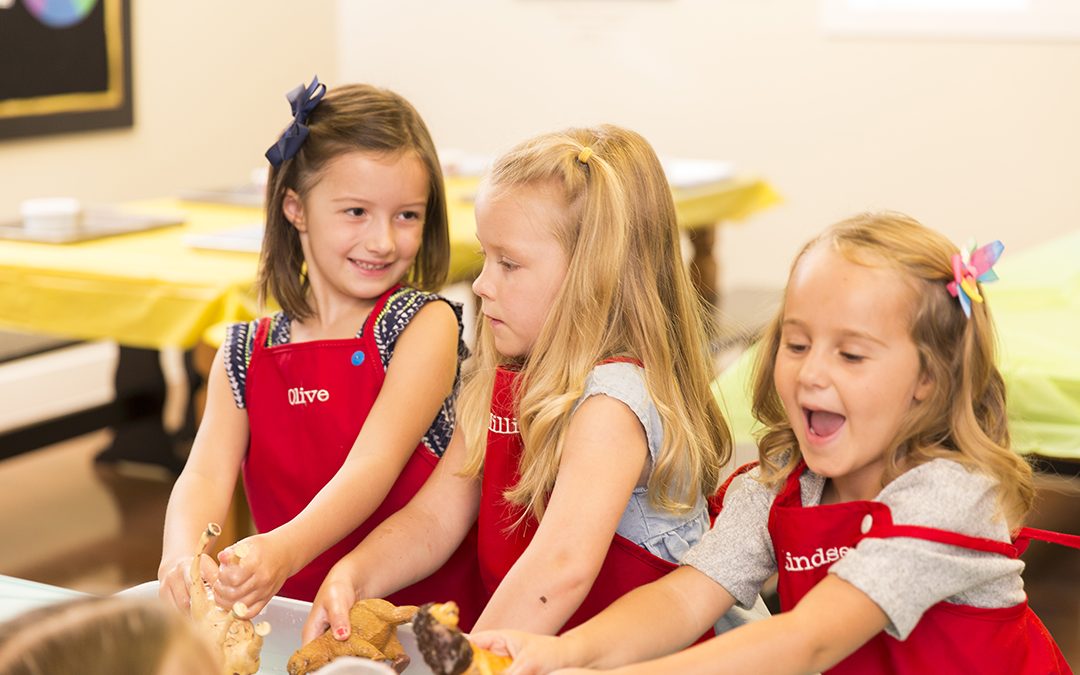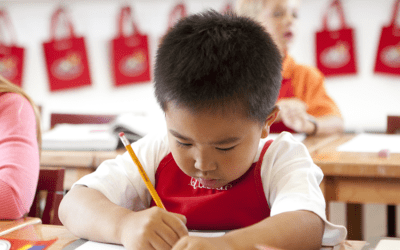Raising kids who have the wherewithal to work past challenges and persevere can be a fine line to walk. You don’t want to be overbearing and force your kids to succeed; that’s a miserable and exhausting experience for both of you. It’s a balancing act: giving your kids the guidance they need while also giving them space to try and fail.
Be a “Dolphin Parent”
Dolphin parenting was coined by Harvard-trained psychiatrist Dr. Shimi Kang as a response to the once-popular Tiger Parenting. Dolphin parenting, jellyfish parenting, and tiger parenting are three distinct and common forms of parenting. Dr. Kang defines tiger parenting as authoritarian, while “Jellyfish Parents” are often permissive. Comparatively, dolphin parents are the ideal balance between the two: authoritative parenting that is gentle guidance, and nurturing the child’s nature.
“Dolphin parents have rules and expectations but also value creativity and independence,” says Dr. Kang. They gradually increase the autonomy of their children as they age, giving instruction when necessary with a focus on learning from trial and error.
This type of parenting gives children the confidence to trust their own choices, which motivates them to continue being decisive and confident in themselves.
Guide their schedule
You definitely want your child to be active and challenged, but don’t overdo it. Make sure your child has the time and attention span to commit to all of their extracurriculars. Dr. Kang asserts that an overly sleepy, exhausted, or overly busy child will lose steam.
Make praise specific
Instead of just saying “good job”, praise specific character values such as honesty, integrity, respect, and responsibility. Focusing on building the inside character versus outside leads to greater internal motivation.
For specific successes, such as an aced test or first place in a spelling bee, praise the effort. Remind them how hard they had to work to get to that point. It can make the difference between a fixed and a growth mindset.
Let them fail
Failure just means you’re trying. Let your kids experience this, as they’ll surely have to endure it later on in life if they take any kind of meaningful risks. If they glide through childhood without any obstacles to overcome, they’ll be clueless about how to break down barriers later in life.
Final Thoughts
The common thread is building autonomy. Your child needs to see themselves as a whole, independent person who can fail or succeed based on their input to any given task. It’s worth noting that sometimes effort alone isn’t always enough, but establishing a strong connection between input and output is crucial.

About Kids Village
Kids Village is a magical private preschool & kindergarten in Orem, Utah. Within the storybook village, students explore academic foundations and master real-world skills while developing a genuine love of learning.
You may also be interested in...
Tips for Encouraging Children to Read During the Summer
With the allure of outdoor activities and family fun during the summer, books often take a back seat. However, summer reading can significantly enhance a child's skills, imagination, and academic preparedness. Here are some fun and effective ways to ignite a passion...
Activities to Celebrate International Family Day
International Family Day, celebrated on May 15th, is a wonderful opportunity to strengthen family bonds and create lasting memories with your children. This special day emphasizes the importance of families, and what better way to celebrate than engaging in activities...
Raising Happy, Motivated Children
Most parents can agree that they not only want their children to be happy, but also want them to be motivated. However, this demands a thoughtful approach to parenting that fosters emotional and psychological health. Here are several strategies grounded in research...
How to Raise Emotionally Resilient Children
Raising emotionally resilient children is an important part of them, one day, becoming confident, and well-adjusted adults. Emotional strength helps children navigate the complexities of relationships, academic pressures, and the inevitable ups and downs of life. Here...
St. Patrick’s Day Activities for Kids
St. Patrick's Day can be a fun holiday to engage children's curiosity and excitement about the holiday while incorporating elements of learning and creativity into the activities. Here are some ideas to celebrate St. Patrick's Day with young children: Leprechaun Hunt...
2024 Family St. Patrick’s Day Events Near Utah County
St. Patrick's Day is a fun opportunity for families to partake in the joy and cultural richness of Irish heritage. Near Utah County, families looking to embrace the spirit of this festive holiday have many options to choose from. Whether it's participating in vibrant...
Leap Year Activity Ideas for Children
It's Leap Day! Every four years, we get an extra day added to our calendars: February 29th. We all this day "Leap Day," and years with Leap Days are called "Leap Years." This special adjustment keeps our calendar in alignment with the Earth's revolutions around the...
Why Kids Village Curriculum is Among the Top in the Nation
While most people who walk through our bright red doors immediately notice our beautiful classroom storefronts, cobblestone streets, and life-sized oak tree, Kids Village is most well known for our award-winning curriculum. Kids Village has won dozens of awards,...
Easy Learning Activities to Do at Home with Your Kindergartener
Introducing your kindergartener to learning activities at home is a wonderful way to supplement their early education and foster their passion for discovery. At this stage of development, children are naturally curious and eager to explore the world around them. By...
How to Get Your Child to Try New Foods
Who doesn’t love macaroni and cheese? Or spaghetti and meatballs? Chances are good you have a stockpile of meal ideas you know your little one will eat, but you want to give them more. Getting kids to try new food can be challenging, but there are a few different ways...
7 Strategies for Getting Your Children to Do Their Chores
Well-intentioned parents everywhere often set out to make a family chore schedule only to have it peter out over a week or two. Let’s face it. As parents, our plates are already so full; it can be challenging to add the extra task of supervising our children’s chores...
The Importance of Routines for Young Children
Routines play a crucial role in children's development and wellbeing. They provide a sense of stability, predictability, and security in a child's life, which is essential for their emotional, cognitive, and social development. Children usually start a more regimented...












